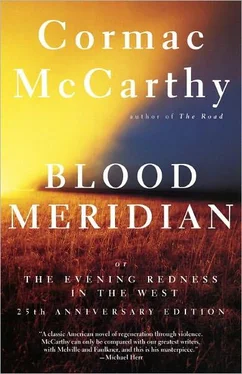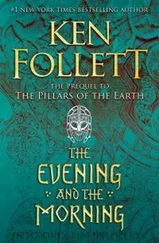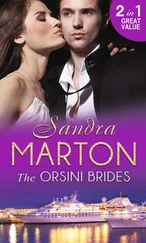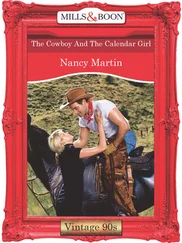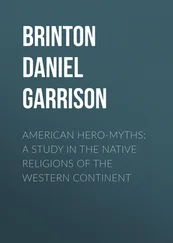Other knives were already in play. Dorsey was grappling with the Mexicans and Henderson Smith had drawn his bowie and half severed a man’s arm with it and the man was standing with the dark arterial blood spraying between his fingers where he tried to hold the wound shut. The judge got Dorsey to his feet and they backed toward the cantina with the Mexicans feinting and jabbing at them with their knives. From inside came the uninterrupted sound of gunfire and the doorframe was filling up with smoke. The judge turned at the door and stepped over the several corpses sprawled there. Inside the huge pistols roared without intermission and the twenty or so Mexicans who’d been in the room were strewn about in every position, shot to pieces among the overturned chairs and the tables with the fresh splinters blown out of the wood and the mud walls pocked everywhere by the big conical bullets. The survivors were making for the daylight in the doorway and the first of these encountered the judge there and cut at him with his knife. But the judge was like a cat and he sidestepped the man and seized his arm and broke it and picked the man up by his head. He put him against the wall and smiled at him but the man had begun to bleed from the ears and the blood was running down between the judge’s fingers and over his hands and when the judge turned him loose there was something wrong with his head and he slid to the floor and did not get up. Those behind him had meanwhile met with a great battery of gunfire and the doorway was jammed with the dead and dying when there was suddenly a great ringing silence in the room. The judge stood with his back to the wall. The smoke drifted through like fog and the shrouded figures stood frozen. In the center of the room Toadvine and the kid were standing back to back with their pistols at port like duellists. The judge stepped to the door and shouted across the stacked bodies to the expriest where he stood among the horses with his pistol drawn.
The laggards, Priest, the laggards.
They’d not have shot men in public in a town so large but there was no help for it. Three men were running down the street and two others were legging it across the square. Of other souls abroad there were none. Tobin stepped from between the horses and leveled the big pistol in both hands and began to fire, the pistol bucking and dropping back and the runners wobbling and pitching headlong. He shot the two in the plaza and swung and shot down the runners in the street. The last one fell in a doorway and Tobin turned and drew the other pistol from his belt and stepped to the other side of the horse and looked up the street and across the square for any sign of movement there or among the buildings. The judge stepped back from the doorway into the cantina where the Americans stood looking at each other and at the bodies in a sort of wonder. They looked at Glanton. His eyes cut across the smoking room. His hat lying on a table. He stepped over and got it and set it on his head and squared it. He looked about. The men were reloading the empty chambers in their pistols. Hair, boys, he said. The string aint run on this trade yet.
When they left the cantina ten minutes later the streets were deserted. They had scalped the entire body of the dead, sliding about in a floor that had been packed clay and was now a wine-colored mud. There were twenty-eight Mexicans inside the tavern and eight more in the street including the five the expriest had shot. They mounted up. Grimley sat slumped sideways against the mud wall of the building. He did not look up. He was holding his pistol in his lap and looking off down the street and they turned and rode out along the north side of the plaza and disappeared.
It was thirty minutes before anyone appeared in the street. They spoke in whispers. As they approached the cantina one of the men from inside appeared in the doorway like a bloody apparition. He had been scalped and the blood was all run down into his eyes and he was holding shut a huge hole in his chest where a pink froth breathed in and out. One of the citizens laid a hand on his shoulder.
A dónde vas? he said.
A casa, said the man.
* * *
The next town they entered was two days deeper into the sierras. They never knew what it was called. A collection of mud huts pitched on the naked plateau. As they rode in the people ran before them like harried game. Their cries to one another or perhaps the visible frailty of them seemed to incite something in Glanton. Brown watched him. He nudged forth his horse and drew his pistol and this somnolent pueblo was forthwith dragooned into a weltering shambles. Many of the people had been running toward the church where they knelt clutching the altar and from this refuge they were dragged howling one by one and one by one they were slain and scalped in the chancel floor. When the riders passed through this same village four days later the dead were still in the streets and buzzards and pigs were feeding on them. The scavengers watched in silence while the company picked their way past like supernumeraries in a dream. When the last of them was gone they commenced to feed again.
They went on through the mountains without resting. They trod a narrow trail through a black pine wood by day and by dark and in silence save for the creaking of tack and the breathing of the horses. A thin shell of a moon lay capsized over the jagged peaks. They rode down into a mountain town just before day where there was no lamp nor watchman nor dog. In the gray dawn they sat along a wall waiting for daylight. A rooster called. A door slammed. An old woman came down the lane past the daubed sty walls through the mist carrying a yoke of jars. They rose up. It was cold and their breath plumed about them. They took down the poles in the corral and led the horses out. They rode up the street. They halted. The animals sidled and stamped in the cold. Glanton had reined up and drawn his pistol.
A company of mounted troops passed out from behind a wall at the north end of the village and turned into the street. They wore tall shakos faced with metal plates and horsehair plumes and they wore green coats trimmed with scarlet and scarlet sashes and they were armed with lances and muskets and their mounts were nicely caparisoned and they entered the street sidling and prancing, horsemen riding upon horses, all of them desirable young men. The company looked to Glanton. He holstered the pistol and drew his rifle. The captain of the lancers had raised his sabre to halt the column. The next instant the narrow street was filled with riflesmoke and a dozen of the soldiers lay dead or dying on the ground. The horses reared and screamed and fell back upon each other and men were unhorsed and rose up struggling to hold their mounts. A second fire tore through their ranks. They fell away in confusion. The Americans drew their pistols and booted their horses forward up the street.
The Mexican captain was bleeding from a gunshot wound in the chest and he stood in the stirrups to receive the charge with his sabre. Glanton shot him through the head and shoved him from his horse with his foot and shot down in succession three men behind him. A soldier on the ground had picked up a lance and ran at him with it and one of the riders leaned down out of that wild melee and cut his throat and passed on. In the morning dampness the sulphurous smoke hung over the street in a gray shroud and the colorful lancers fell under the horses in that perilous mist like soldiers slaughtered in a dream wide-eyed and wooden and mute.
Some among the rear guard had managed to turn their mounts and start back up the street and the Americans were clouting back with pistolbarrels the riderless horses and the horses surged and milled with the stirrups kicking out and they trumpeted with their long mouths and trampled underfoot the dead. They beat them back and urged their horses through and up the street to where it narrowed and turned up the mountain and they fired after the fleeing lancers as they skeltered up the trail in a rattle of small stones.
Читать дальше
